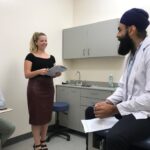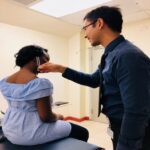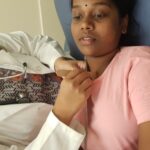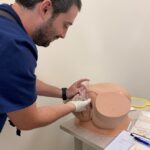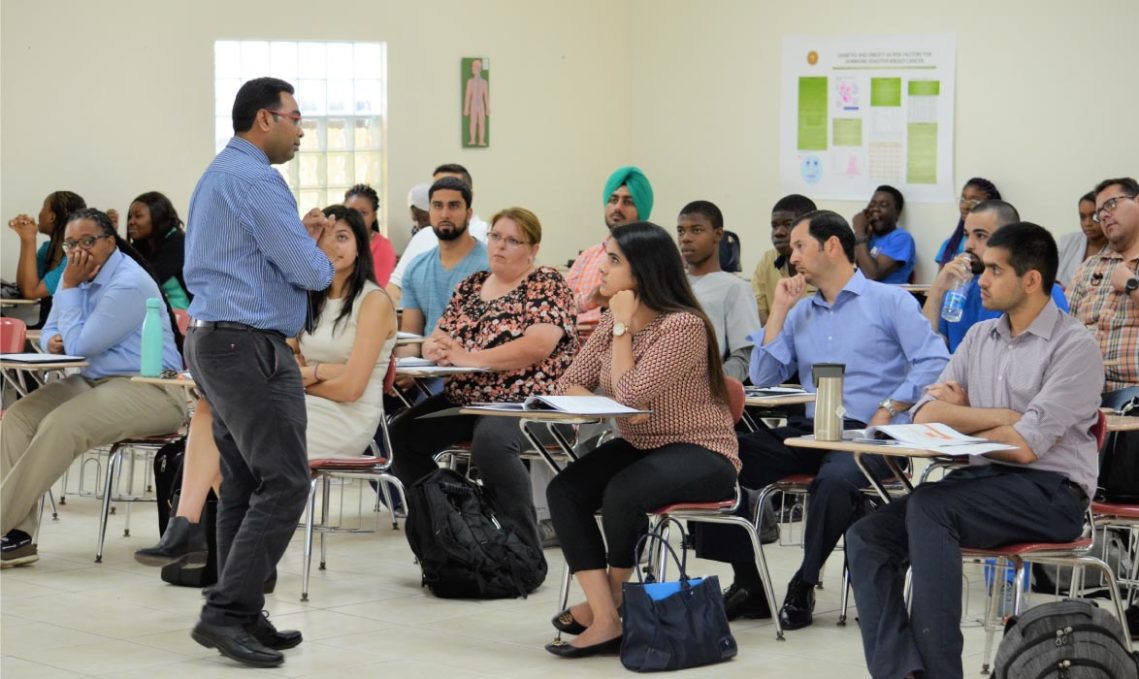
BASIC SCIENCES CURRICULUM
Foundation of Normal Process (MD1 - MD2)
The modules covered in the first half of the basic sciences curriculum are termed as “FOUNDATION OF NORMAL PROCESS” which basically covers the normal structure, function and biochemical aspects of various systems and is covered over 7 modules. The following courses are selected because together they serve as the foundation of the normal process: Anatomy & Embryology, Physiology, histology, cell biology, biochemistry, and genetics.
Foundation of ABnormal Process (MD3 - MD4)
The modules covered in the second half of the basic sciences curriculum are termed as “ FOUNDATION OF ABNORMAL PROCESS” which basically covers the abnormal structure, function and microbiological aspects of various systems and is covered over 7 modules. The following courses are selected because together they serve as the foundation of the abnormal process: Pathology, Pharmacology, Microbiology, and Behavioral Science.
Introduction to Clinical Medicine (ICM) Series
Medical students at Windsor have a unique opportunity to experience the learning of foundational knowledge with early exposure to clinical setting with adoption of system based modular curriculum aligned and integrated with courses called Introduction to Clinical Medicine Series.
These courses are taught in our new state of the art Simulation Centre by experienced and dedicated faculty who care about what student learn. They use the advanced simulation man and model to replicate clinical scenarios and also use Standardized patients in course delivery and assessment.
The clinical cases used in each of these courses are designed to sequentially integrate with the system taught in the modular curriculum. Further integration is achieved through OSCE Station designed to align with each system. These integration envisions context before content philosophy and helps students to assimilate the foundational knowledge better.
These ICM courses develop necessary clinical skills by demonstration and supervised practice followed by Role Playing which are augmented by interactive lecture and small group discussions. Questions on relevant patient care and communication are also tested in each of the End Modular Exam thus integrating the assessment.
MD I: FOUNDATION OF NORMAL PROCESS
This comprises of 3 modules: Fundamentals Of Basic Sciences I, Musculoskeletal And Integumentary System I, Cardiovascular And Hematologic System I and Respiratory System I.
This module serves as an introduction to the fundamentals of medical sciences. In this context, students will be introduced to cell biology; the general principles of Anatomy, Physiology, and Biochemistry. The Cell biology component will be comprised of cellular organelles and function, the cell cycle and its regulation, cytoskeleton and the process of apoptosis. Students will be introduced to the concepts of gamete formation and fertilization up to the various phases of fetal development. Students will also learn the physiological and biochemical aspects of homeostasis, body fluid compartments, cell membrane transport, and action potential. Enzyme kinetics and carbohydrates will also be addressed. In general, this module provides the basic concepts and information, which will help students learn the following modules within an organ system-approach. Frontier courses and the course in Introduction to Clinical Medicine I will run parallel to the modules.
This module, with the help of lectures and active sessions, covers the understanding of structure, development, and function of the Musculoskeletal system. It addresses the upper and the lower limb musculoskeletal structures along with its blood and nerve supply and lymphatic drainage. Students will also be able to learn the structure of basic tissues and types of epithelium, connective tissue, and bones. It provides students with an understanding of Nerve muscle physiology in terms of generation of the Action potential, Excitation-contraction coupling, and its applied aspects. It also explains the biochemical mechanisms related to musculoskeletal system viz. Glycolysis, Krebs Cycle, and Oxidative phosphorylation. All these topics are integrated with clinical examinations of Upper limb, lower limb and Joints in Introduction to Clinical Medicine I throughout the module. Students also learn the DNA replication, Transcription, and Translation of proteins and also learn the regulation of gene expression and recombinant DNA technologies and applications of Transgenic, gene therapy, and cloning.
This module is designed to facilitate the learning of normal processes related to the cardiovascular and Respiratory system. This is achieved by integrating the knowledge of Anatomy, Histology, Embryology, Physiology, and Biochemistry.
Part 1: Cardiovascular and hematologic system I
This module covers the mediastinum, intercostal space with coronary and intercostal arteries, in addition to hematopoiesis, blood cells, and the histology of cardiac muscle, arteries, and veins. Concurrently, students learn the development of heart and blood vessels along with fetal circulation. Students will also acquire the knowledge of physiological processes of cardiac and pacemaker action potential, cardiac conduction, cardiac cycle, cardiac output, ECG, hemodynamics, hemostasis, and blood grouping, along with its application. The module also addresses the energy sources and metabolism in cardiac muscle, glycogen metabolism, gluconeogenesis, metabolism of monosaccharides besides cell signaling, molecular genetics and inherited genetic diseases. The knowledge acquired in this module will be the foundation to understand the abnormal process (or diseases) related to the cardiovascular and hemostatic system in the higher semesters. The objectives of the module will be covered through lectures and various active learning sessions over a period of 4 weeks.
Part 2: Respiratory system I
The module also covers the structural details of lungs, pleura along with the development of a nasal cavity, paranasal sinuses, diaphragm and respiratory system as a whole including the related congenital anomalies. The understanding of histology of trachea, bronchi and bronchioles, alveoli, pneumocytes, and associated pathologies will be ensured through lectures and laboratory exercises. The students will also develop a concept of mechanics of breathing, lung volume and capacities, gas exchange at lung and tissue level, transport of oxygen and carbon dioxide, regulation of respiration and the integrated response of the respiratory system to different physiological conditions like high altitude, hyperbaric environment, etc. The chemistry, biosynthesis, and catabolism of hemoglobin will be covered along with hemoglobinopathies and liver function tests. The cell signaling pathways and signal transduction will help the students to understand the drug development process and pharmacogenetics. Therefore this module is an essential foundation to diagnose and manage respiratory disorders. The objectives of the module will be covered through lectures and various active learning sessions over a period of 2 weeks. Introduction to clinical medicine and frontiers- Ethics and Principles of Biomedical Research (PBMR) will run parallel to the modules.
The ICM-1 course orients the student to the fundamentals of the clinical settings which includes understanding of the organization of the patient data. Students are introduced to the basics of history taking during the first module.
The students learn and practice clinical examination concepts of normal findings in a musculoskeletal examination. Students use standardized patient and role play to master essential skills of the musculoskeletal examination during the second module. During the Last module students focus on the normal findings in a cardiovascular and respiratory system. They are trained on Sim man to identify various heart and respiratory sounds and proper techniques of examination.
Skills and Knowledge acquired during this semester are assessed at the end of semester using separate OSCE stations representing each modular area.
The ICM1 course thus augments three modules to help student apply the foundational knowledge of normal human in the clinical context.
Genetics deals with the molecular structure and function of genes, patterns of inheritance from parent to offspring, and gene distribution, variation and change in populations and changes in gene expression in various normal and disease states. A basic knowledge in genetics is essential for all students of medicine.
PBMR I:
Medical bioethics will consist of a series of discussion and didactic lecture on various topics such as disclosure, confidentiality, informed consent, and death and dying. Legal cases posing dilemmas that relate to each case will be presented, along with abstract material to facilitate conceptual and ethical case law. Overview of the ethical issues involved in the practice of medicine will correlate with today’s news and headlines. A distinction will be made, of medical ethics, as what is acceptable for the USMLE / Board exams since that is the acceptable practice in North American hospitals and clinics.
RPIGS & ETHICS:
The role of physicians in Gobal society is an Introduction to Medicine and Society, we explore what we think of health and illness, the determinants of health, patient- and family-centred care Aboriginal health and healing, culture, stress and resilience, systems thinking and change, physician roles, and leadership. These topics will help prepare you to provide both care and cure, that is, supporting and treating patients, as well as carrying out research in the many fields of health.
MD 2 : FOUNDATION OF NORMAL PROCESS II
This comprises of 3 modules: GI And Hepatobiliary System I, Endocrine And Reproductive System I and Renal And Nervous System I. Apply now to get started in your medical career, or call us to learn more.
This module will acquaint you with the fundamental knowledge related to normal structure and function of gastrointestinal system along with the hepatobiliary system. You will be able understand and apply the knowledge of development, gross anatomy, histology, physiological and biochemical processes related to these system in clinical cases. This module also imparts you basic skills on history and physical examination of patient presenting with gastrointestinal problems.To impart basic science knowledge to the students the program uses didactics lectures, clinical case discussion and laboratory experience. These methods are geared not only to acquire basic sciences knowledge but to also be able to apply the acquired knowledge in clinical settings.
This module, with the help of lectures and active sessions, covers the understanding of all the endocrine glands, their secretion, and male and female reproductive systems. It addresses the structure related to pelvis, perineum and male-female genitalia. Students will develop a concept of embryonic development of endocrine glands, male and female external genitalia and anomalies of genitor-urinary development. Students will also be able to learn the histology of different endocrine glands and reproductive structures. It provides students with an understanding of the mechanism of secretion, actions of endocrine hormones and features related to their hyper- and hyposecretion. The functional aspects of male and female reproductive physiology will be covered along with the physiological changes occurring in puberty. It also covers the metabolism of cholesterol, amino acids, and vitamins along with the related diseases. Introduction to Clinical Medicine II and Frontier courses like Principles of Biomedical Research II will run parallel to the module.
The Renal and Nervous System I module is an integration of Anatomy, Embryology, Physiology, Histology and Biochemistry to help the student understand the structure, function and biochemical aspect of the renal and nervous system.
Part I- The Renal System I
Early part of this module covers the Development and structure of Kidney, Ureter, Bladder, and urethra. It covers the Physiology of Urine formation and students learn the concepts of important physiological processes in nephron- Glomerular filtration, reabsorption, and tubular secretion. It emphasizes on Mechanism of urine concentration and dilution, and process of Micturition. Students will learn Body fluid and water balance and Acid-Base balance and how the kidney handles electrolytes.
Part II- The Nervous System I
The second part of the module covers regional anatomy and histology of Head and Neck. It covers the structure of Cranial Nerves and blood supply of the head and neck and as well as its applied aspects. It also covers special senses organs such as Eye, Ear, Tongue, and Nose. Students also learn the development of the nervous system from the formation of the neural tube and its transformation to Forebrain, Mid, And Hind Brain Development. It also addresses the types, clinical aspects, and causes of neural tube defects.
ICM covers sensory and motor examination as well as examination of Cranial Nerves, eye, and ear. Biochemistry will introduce to aminoacids, Metabolism of amino acids and structural organization of the proteins and its catabolism. It also covers conditions associated with defects of structural proteins – Collagen disorders, Osteogenesis imperfecta, and elastase deficiency. By-products of DNA and metabolism of Purines and Pyrimidines are also covered.
The clinical content taught in this course reflects the modular syllabus in the MD2 curriculum.
During the sessions running parallel with GHS 201 Module students practice history and examination skills for Abdominal Examination. They learn to identify normal position of organs with respect to abdominal wall and associate this with normal findings in this system.
Students are taught the steps of Thyroid examination during sessions running along with the ERS 202 Module. They use female genital simulator to practice the steps of the Female Genital examination.
The students learn the skills of CNS examination in a normal human. Students practice skills necessary for Cranial Nerve examination, Motor and Sensory Examination. These sessions are aligned and integrated with RNS 203 Module.
Skills and Knowledge acquired during this semester are assessed at the end of semester using separate OSCE stations representing each modular area.
The ICM2 course thus augments three modules to help student apply the foundational knowledge of normal human in the clinical context.
This course will include an interdisciplinary investigation of the physiology and the gross and microscopic structure of the brain, spinal cord, and nervous system of humans. Aspects of brain energy metabolism, neurotransmitter synthesis and degradation, and psychopharmacology are presented. This course integrates anatomical and physiological material to assist the student in understanding common neurological disease processes. Each system is correlated with its physiology and relevant clinical applications, including behavioral aspects. Emphasis is placed on the function of the nervous system in health and sickness. Modern concepts of neuronal circuits and synaptic transmission are also introduced. Laboratory instruction includes detailed brain examination and exposure to neuro-imaging modalities, CT scans and MRI scans, and principles of neurological examinations.
PBMR II – Journal Club:
The Principles of Biomedical Research course is an extensive, four-semester course intended to familiarize the medical student with biomedical research and to provide the essentials of biomedical research conduct and research paper writing.
Part II, given in MD2, MD3 and MD4, is dedicated to a research project that the students conduct in small, guided research groups. The final research project is submitted as a research paper and also presented as an oral and poster presentation at the School’s Research Day
MD 3 : FOUNDATION OF ABNORMAL PROCESS I
This comprises of 3 modules: Fundamentals Of Basic Sciences II, Neoplasia And Immune System and Cardiovascular And Hematologic System II.
This module provides an introduction to the “FOUNDATION OF ABNORMAL PROCESS” wherein the students with the help of Lectures and Active Learning sessions will be introduced to the fundamentals of Basic Sciences courses; Pathology, Pharmacology, and Microbiology. In this module, students will learn cellular adaptations, Inflammation, hemodynamic disorders and pathological aspects of Genetic disorders and various modes of Environmental Exposure. In this module, the student will also learn general aspects of pharmacology which include Pharmacokinetics, pharmacodynamics, and pharmacogenetics. Pharmacology of the Autonomic nervous system and related drugs will be addressed. The general aspects of Autonomic drugs and their effects on various organ systems will be discussed. General aspects, structure and lab diagnosis of Bacteria, virus, fungi, helminths, and protozoa will be discussed. This will also cover the overview of the mechanism of action & resistance to the important class of antimicrobials.
Neoplasia and immune system module with the help of lectures and active learning sessions introduces students to the molecular basis, types and clinical aspects of neoplasia. It also discusses pharmacological aspects of Anticancer drugs including strategies to prevent its toxicity. This module will cover all the aspects of the immune system which includes types, role in inflammatory and hypersensitivity response, the role of cytokines, complement system, MHC, steps of antigen recognition and types and functions of Antibodies. This module will also address related topics but not limited to Immunization, Transplantation and Immunodeficiency Diseases. It covers Clinical aspects and pathophysiology of Autoimmune Diseases and the role of immunosuppressants. Students will learn the pathophysiology of Migraine, Rheumatoid arthritis and Gout, and pharmacotherapy. It will also help students to understand drugs interacting through Histamine, Serotonin, Bradykinin, and Prostaglandins including Non-Steroidal Anti-inflammatory Drugs (NSAIDs).
This module is designed to facilitate the learning of abnormal processes related to the cardiovascular and hematologic system. This is achieved by integrating the knowledge of Cardiovascular Pathology with Treatment aspects in Pharmacology and Cardiovascular pathogens in Microbiology. This module covers the classification, etiopathogenesis of anemia including hemoglobin and membrane defects. Pharmacotherapy of hematopoietic disorders will be covered. It also covers Neoplastic aspects of blood disorders- Acute and Chronic Leukemia, Hodgkin’s and Non-Hodgkin’s Lymphoma and plasma cell neoplasms. Pathophysiology of cardiovascular conditions like Hypertension, Atherosclerosis, Congestive heart disorder, Myocardial infarction, Valvular heart disease, myocarditis, Cardiomyopathy & types, Rheumatic Fever, Congenital heart disease, and pericarditis will be Covered. Concurrently, Pharmacotherapy of the Cardiovascular disorders will be addressed. The module also addresses the pathogens involved in cardiovascular disorders. ICM will cover the focused history and physical examination of the cardiovascular system. The objectives of the module will be covered through lectures and various active learning sessions over a period of 5 weeks. Introduction to clinical medicine and frontiers- Biostatistics and preventive medicine will run parallel to the modules.
The ICM3 course extends the skills acquired in the MD 1 and MD 2 and reflects the foundational knowledge on abnormal human taught in the various modules.
During the FBS 301 Module, ICM3 course emphasizes on history taking skills in difficult patient and expands the knowledge and skills on the General Survey.
Students practice on the Breast Mannequin and develop skills necessary for understating breast examination in cancer patients using various breast simulator modules during the NIS 302 Module.
MD3 students are taught on advanced Cardiovascular Examination and identify signs and symptoms in various disease corresponding to the abnormal human taught during the CHS 303 Module.
Skills and Knowledge acquired during this semester are assessed at the end of semester using separate OSCE stations representing each modular area.
The ICM3 course thus augments three modules to help student apply the foundational knowledge of abnormal human in the clinical context.
PBMR III-Group Project:
The Principles of Biomedical Research course is an extensive, four-semester course intended to familiarize the medical student with biomedical research and to provide the essentials of biomedical research conduct and research paper writing.
Part II, given in MD2, MD3 and MD4, is dedicated to a research project that the students conduct in small, guided research groups. The final research project is submitted as a research paper and also presented as an oral and poster presentation at the School’s Research Day
Community Medicine, and Biostatistics:
This course is a survey course that addresses the fundamentals and principles of the distribution of diseases and their causes in human populations. Students will have to conduct epidemiologic investigation, critically review medical literature, and how to use such information in a clinical environment such as with preventive medicine. This course is designed to acquire some basic level of proficiency in epidemiologic principles, preventive medicine and to understand epidemiology concepts in clinical practice and with community health.
MD 4 : FOUNDATION OF ABNORMAL PROCESS II:
This comprises of 4 modules: Respiratory And Nervous System II, GI And Hepatobiliary System II, Endocrine And Reproductive System II and Renal And Musculoskeletal System II.
Part I- Respiratory System II
The first part of the module focuses on the pathologic basis of respiratory disorders- Obstructive and Restrictive lung diseases, Infectious lung disease, neoplastic disease, acute respiratory failure, Atelectasis, Diffuse pulmonary hemorrhage, pulmonary hypertension. This module covers microbiological aspects of infection caused by bacteria, viruses, and fungi involving the respiratory system. It addresses the pharmacotherapy of important respiratory disorders- Bronchial asthma and COPD and also covers Antitussives and the role of Mucokinetics & mucolytics. Introduction to Clinical Medicine (ICM) covers the focused history and systematic physical examination of the respiratory system
Part II- Central Nervous System II
The second part of the module focuses on the pathologic basis of CNS disorders- Stroke, Congenital malformations, Demyelinating diseases, and Neurodegenerative Diseases. It also covers the Pharmacological aspects of drugs used in the treatment of epilepsy and neurodegenerative diseases. It also addresses the role of opioid analgesics in pain management and pharmacology of General and Local anesthetics. In addition, it also introduces the important microorganisms that infect CNS. Introduction to Clinical Medicine (ICM) covers the focused history and systematic neurological examination.
The Respiratory and Nervous systems module content is delivered through interactive lectures and active learning sessions, over a period of 3 weeks.
The Gastrointestinal and Hepatobiliary system II module focuses on the pathologic basis of oral cavity and salivary gland disorders, esophageal disorders, gastric disorders, small and large intestinal disorders (including colonic adenocarcinoma and carcinoid tumors), jaundice and cholestasis, hepatic failure, cirrhosis, alcoholic liver disease, obstructive biliary tract disorders and hepatic tumors, acute and chronic cholecystitis, pancreatitis and pancreatic adenocarcinoma. It also covers the Pharmacological aspects of antiemetics/laxatives, antidiarrheal drugs, and drugs used in peptic ulcer disease. In addition, it also introduces the important microorganisms that infect the gastrointestinal tract and hepatobiliary system. Introduction to Clinical Medicine (ICM) covers the focused history and systematic physical examination of the abdomen and oral cavity. The module content is delivered through interactive lectures and active learning sessions, over a period of 3 weeks.
This module, with the help of lectures and active sessions, covers the understanding of the pathology of all the endocrine glands, their secretion, and male and female reproductive systems. It covers the pathophysiology of benign and malignant reproductive and pregnancy-related disorders and pharmacology of various hormones and its analogs and antagonists in hormonal disorders/ hormone-responsive tumors. It also introduces students to the pathophysiology of the pituitary, hypothalamic, Thyroid, parathyroid, adrenal disorders and pharmacology of structural analogs and related drugs associated with these disorders. It discusses the pharmacotherapy of Diabetes Mellitus and discusses various Insulin preparations and other antidiabetic drugs. It also covers drugs related to sex hormones and pharmacology of contraceptives. It addresses Microbiological, clinical aspects, prevention, and treatment of Sexually transmitted diseases. (HSV 2 and HPV, Candidiasis, Trichomoniasis, vaginosis, Chancroid, Donovanosis, Gonorrhoea, Chlamydia trachomatis, Syphilis, and LGV. During this module, students will learn to take a focused history and examination associated with the reproductive system in Introduction to Clinical Medicine IV.
This module covers pathological aspects of disorders of the renal system including Nephritic and nephrotic syndrome, nephrolithiasis, and tumors of the bladder and kidney. It also addresses the pathophysiology and microbiological aspects of organisms associated with UTI and pyelonephritis. It also covers microbiological aspects of infections involving bone, muscles, and skin and discusses the pathophysiology and pharmacotherapy of disorders of Musculoskeletal and integumentary disorders. It also covers general principles of antibiotic therapy and pharmacology of Antibacterials, Antiviral, Antifungals, Antiprotozoal and Anthelmintic. Introduction to Clinical Medicine (ICM) will focus on focused history and physical examination of disorders related to renal, musculoskeletal and integumentary systems. The objectives of the module will be covered through lectures and various active learning sessions over a period of 4 weeks.
The ICM4 course extends the skills acquired in the MD 1 and MD 2 and reflects the foundational knowledge on abnormal human taught in the various modules.
During the RNS 401 Module, ICM4 course focuses on developing skills on eye and ear examination. Students are exposed to advanced techniques and signs and symptoms in various presentations in abnormal human. They learn the essential skills of Fundoscopy and Otoscopy.
Students practice on the Standardized patient and Mannequin and develop skills necessary for understanding Abdominal examination in abnormal human during the GHS 402 Module.
MD4 students’ knowledge and skills acquired in MD2 on Neck and Thyroid and Female Genital Examination is expanded on during ERS 403 Module. Students practice skills on the Female Genital Simulator and PAP smear procedure.
RMS 406 Module corresponds to students learning the Renal and Musculoskeletal Examination skills in abnormal human. They learn interpretation of abnormal blood investigations and special tests used in Musculoskeletal Examination.
Skills and Knowledge acquired during this semester are assessed at the end of semester using separate OSCE stations representing each modular area.
The ICM4 course thus augments four modules to help student apply the foundational knowledge of abnormal human in the clinical context.
Behavioural Sciences
PBMR IV-Group Project:
The Principles of Biomedical Research course is an extensive, four-semester course intended to familiarize the medical student with biomedical research and to provide the essentials of biomedical research conduct and research paper writing.
Part II, given in MD2, MD3 and MD4, is dedicated to a research project that the students conduct in small, guided research groups. The final research project is submitted as a research paper and also presented as an oral and poster presentation at the School’s Research Day
MD 5 : Preparing for Hospital Clerkships
The Windsor University School of Medicine’s MD V course prepares students to be effective, competent and confident in their hospital clerkships. Practical application of the techniques and theories learned throughout previous MD courses is critical, along with electives that foster a well-rounded medical education. To learn more about studying medicine in St. Kitts, call us today.
This course aims to provide a platform for active learning where the students review the content that is assigned by the course faculty and meet during the scheduled encounter sessions where the content assigned will be reviewed and assessed in the form of formative and summative quizzes.This course helps students to analyze a clinical problem starting with presenting symptoms and logically develop an algorithm for the analysis of signs, investigations, identification of the disease process, distinguishing from other related entities, deciding on the course of illness, principles of initial management and explaining all these on the important concepts of basic sciences learnt from the previous courses in the medical school. Details on the management of patients will be taught in years 3 and 4 during the clinical clerkship, and hence will not be overly emphasized in this course.
This course helps prepare the student for hospital clerkships. Daily lectures on the pathophysiology of systemic diseases are correlated with the Comprehensive basic science review course. Students learn how to present cases and to do library evidenced based medicine research for strategies leading to a definitive problem solving approach. Patients visit the JNF hospital, which will provide the student with hands-on experience. Students carry a small caseload and are expected to be on-call with the island physician.
Electives
Electives are offered to Basic Sciences students during the first two years of the four-year medical program. The objective is to provide a structured learning experience in diverse clinical and scholarly areas. This gives students the opportunity to integrate Basic Sciences knowledge into clinical areas and may provide a transition into clinical medicine specialties. These elective courses provide enhanced value to the WUSOM curriculum.
Electives are offered by various departments and coordinated through the Office of the Dean.
All elective courses mandate 100% attendance to meet licensing and certification requirements. In addition, there are additional fees, costs and equipment requirements to participate.


